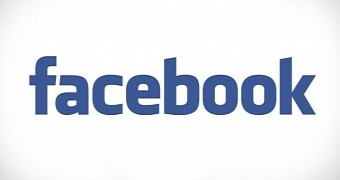It’s been months since Facebook faced one of the biggest scandals it was ever a part in after the emotion manipulation study was published, but the company is once more issuing an apology and promising it will be more careful from now on.
The company claims it was unprepared for the rash criticism Facebook received over the past few months.
“It is clear now that there are things we should have done differently. For example, we should have considered other non-experimental ways to do this research. The research would also have benefited from more extensive review by a wider and more senior group of people. Last, in releasing the study, we failed to communicate clearly why and how we did it,” Facebook’s Chief Technology Officer Mike Schroepfer said.
He explains that they got the inspiration for the research dating back to 2011 which suggested that when people saw positive posts from friends on Facebook, it made them feel bad. The research that Facebook got bashed for indicated the exact opposite – people responded positively to positive posts from buddies.
Even so, the company wants to make sure it never gets slammed the way it did this past summer, so it is introducing a new framework that covers internal work and research that might be published.
Major changes coming to Facebook's research groups
On one hand, researchers have been given clearer guidelines. “If proposed work is focused on studying particular groups or populations (such as people of a certain age) or if it relates to content that may be considered deeply personal (such as emotions) it will go through an enhanced review process before research can begin,” Schroepfer writes.
On the other hand, there’s going to be a new review panel that includes the “most senior subject-area researchers,” as well as people from the engineering, research, legal, privacy and policy teams, all of whom will review projects falling within the guidelines.
Facebook will also be incorporating education on its research practices into the six-week training program that new engineers go through. The company also set up a research website where all academic researches have been stored and where the new ones will be delivered.
“It’s important to engage with the academic community and publish in peer-reviewed journals, to share technology inventions and because online services such as Facebook can help us understand more about how the world works. We want to do this research in a way that honors the trust you put in us by using Facebook every day. We will continue to learn and improve as we work toward this goal,” Facebook’s CTO wrote.
700,000 users, one week, two teams
If you remember, Facebook got in trouble after one of its recent researches was published in a scientific magazine. In it, it was revealed that about 700,000 people were randomly selected to be a part of the study.
The social network tweaked the news feed algorithm for these people so they could only see either positive or negative updates from their friends. Messages were filtered by key words and for an entire week in 2012, users were faced with an emotional contagion study.
The company was accused of emotionally manipulating its users and many questioned the morality of such a research since people with depression could have been part of the group getting negative updates.

 14 DAY TRIAL //
14 DAY TRIAL //